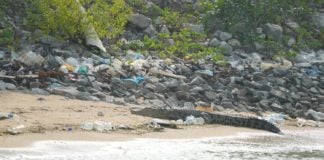Hong Kong To Ban Japanese Seafood Products If Radioactive Wastewater Plan Gets Green Light
Japan has caused quite a stir over its wastewater release plan in the last two years.
Authorities intend to release treated radioactive water from the Fukushima nuclear power plant into the Pacific Ocean.
This plan to clean up the accumulated waste at the tsunami-wrecked plan did not go down well with local and international communities.
Now, Hong Kong has made its stance clear — the city would instantly ban the import of seafood products from Japan if the plan goes through.
Hong Kong seeking to ban imports from 10 prefectures in Japan
According to AP, Hong Kong is concerned about the plan’s impact on ecology and food safety even if the wastewater was treated.
Mr Tse Chin-wan, the secretary for environment and ecology, said their assessment shows prefectures near Fukushima are at higher risk. Hence, they needed to take a responsible way for their citizens.
Hence, the ban would be imposed on the following imports from 10 prefectures in Japan:
- live, frozen, refrigerated, dried or preserved aquatic products
- sea salt
- unprocessed or processed seaweed.

Source: AFP via VOA
Since the 2011 tsunami incident, Hong Kong has banned the import of specific items, such as fruits, milk, and vegetables, from Fukushima.
It will only allow meat and poultry if they have a radiation certificate.
If the ban were implemented, Japan’s economy would likely take a huge hit, as the city is the country’s second-largest market for agricultural and fisheries exports.
Japan asks Hong Kong not to ban its seafood products
Meanwhile, Japan has asked Hong Kong not to tighten import restrictions while discussions for the wastewater discharge plan are ongoing.
Al Jazeera reports that the plan will be carried out gradually.
Japan’s Foreign Ministery also assured Hong Kong of the safety of Japanese food.
Wastewater enough to fill 500 Olympic-sized pools accumulated at nuclear plant
For context, the Fukushima nuclear plant had been destroyed by the March 2011 tsunami, causing the world’s worst nuclear disaster since Chernobyl.
Over 1.3 million tonnes of water, enough to fill 500 Olympic-sized swimming pools, has accumulated at the plant.
Since the plan was announced two years ago and endorsed by the United Nations’ nuclear agency, local fishermen have voiced their dissent as they fear for their livelihoods.
Japan’s neighbours are also against the plan, with China being one of the fiercest critics so far.
On the other hand, South Korea approves, saying it has faith that Japan’s plan will meet international standards.
Have news you must share? Get in touch with us via email at news@mustsharenews.com.
Featured image adapted from Unsplash.








